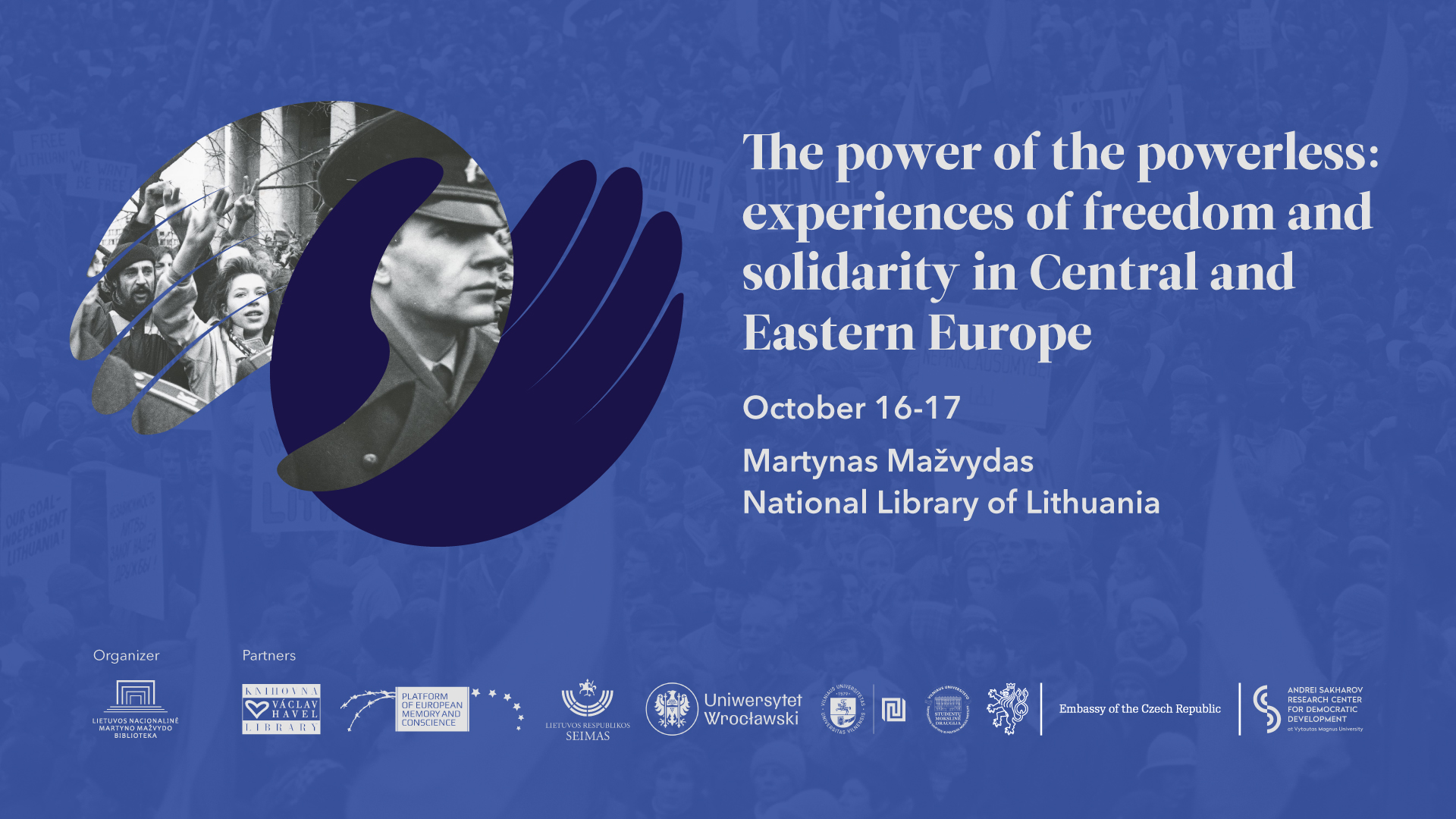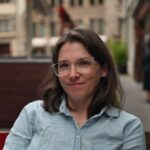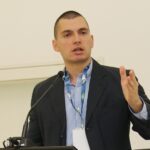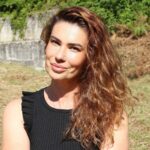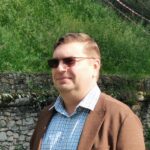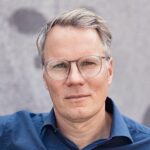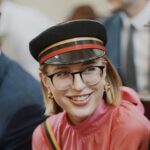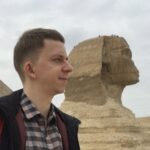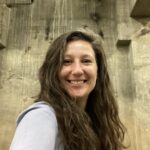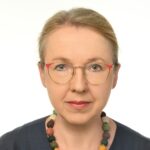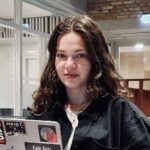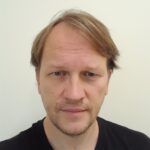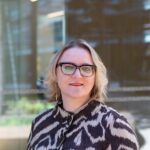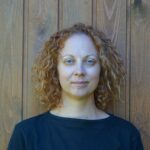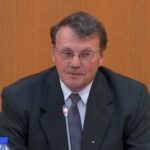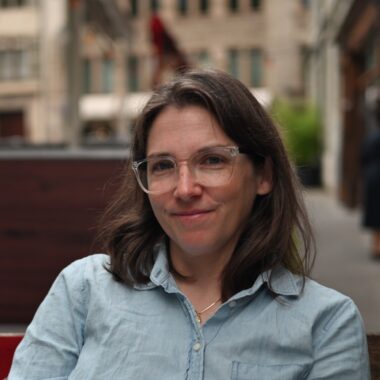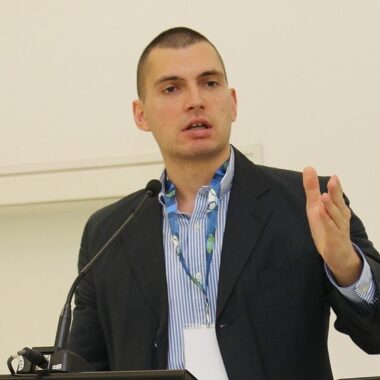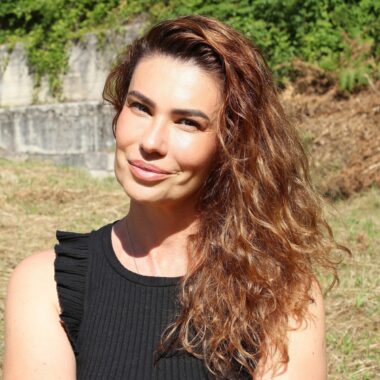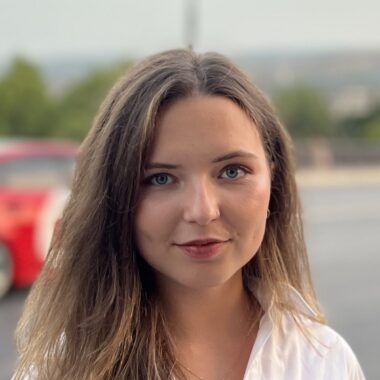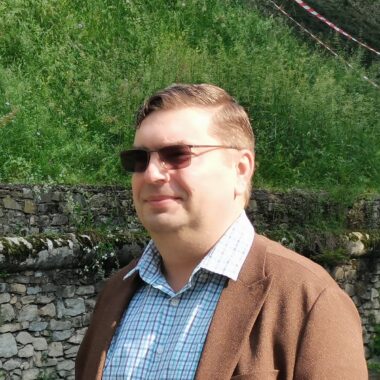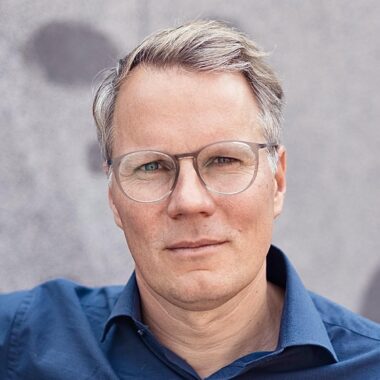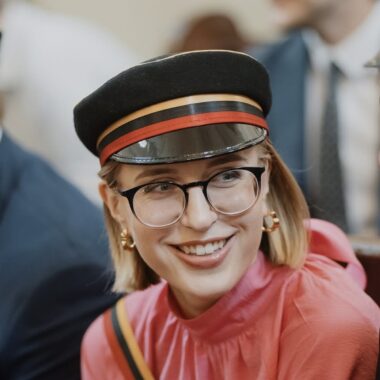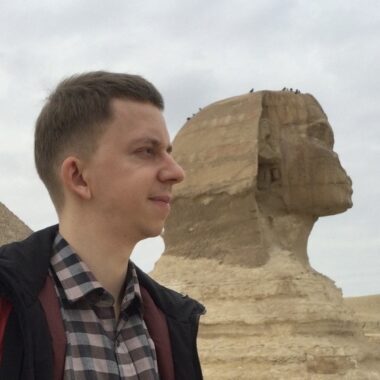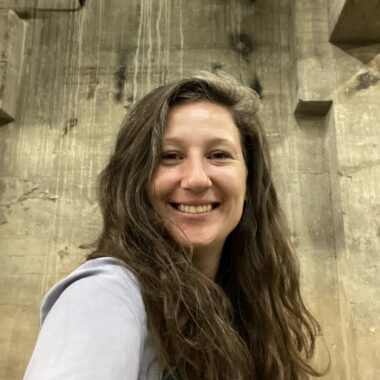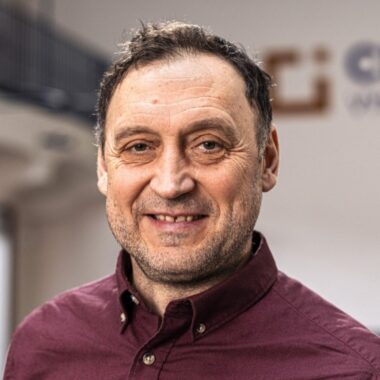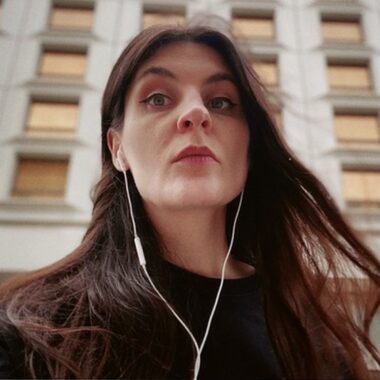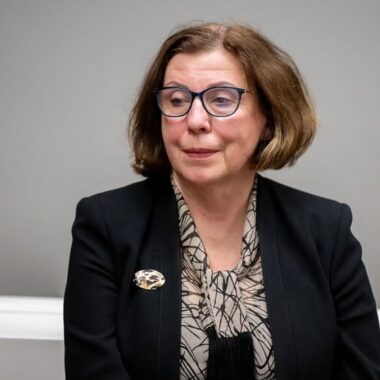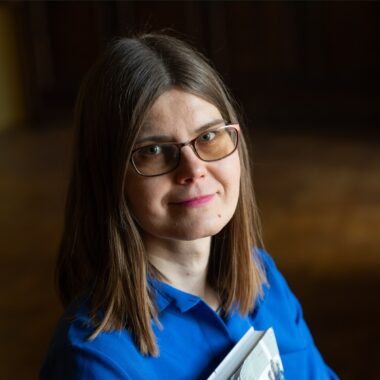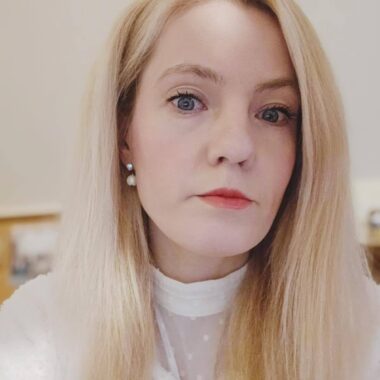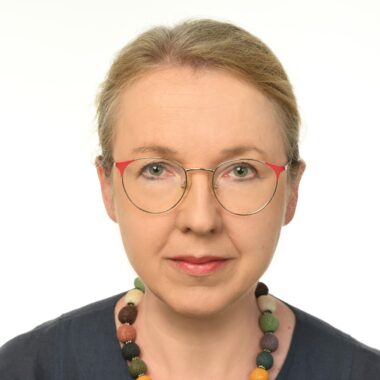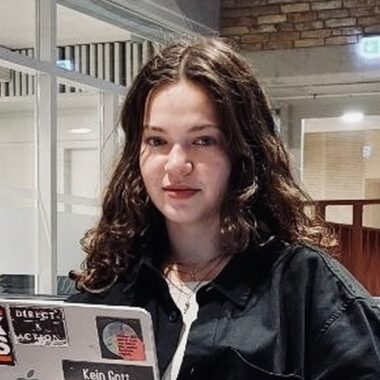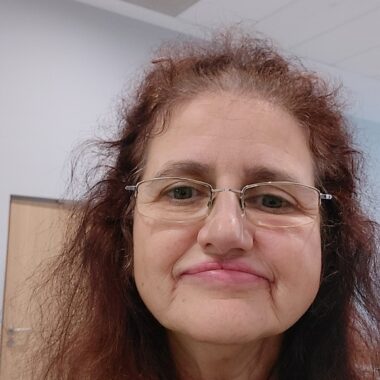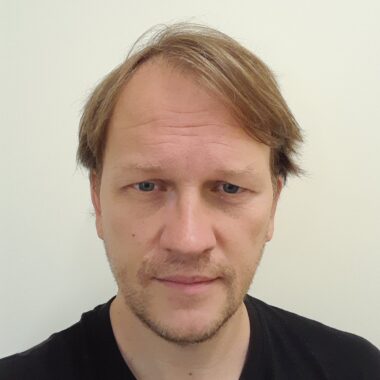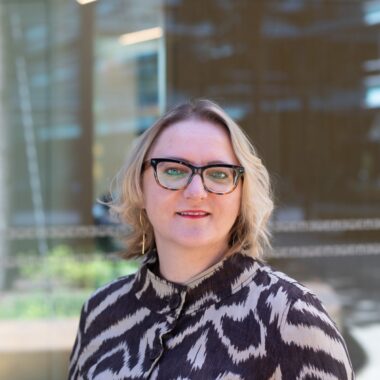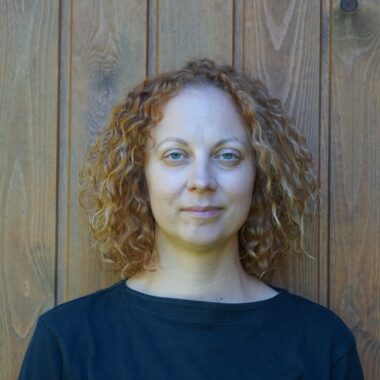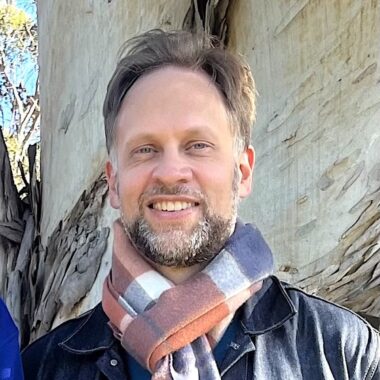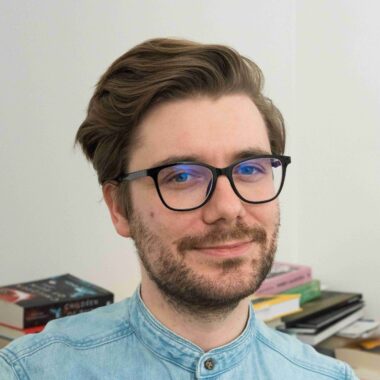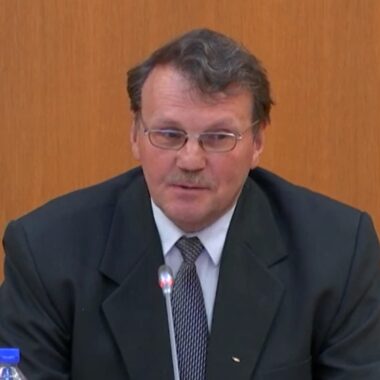The singular, explosive, incalculable political power of living within the truth resides in the fact that living openly within the truth has an ally, invisible to be sure, but omnipresent: this hidden sphere. It is from this sphere that life lived openly in the truth grows; it is to this sphere that it speaks, and in it that it finds understanding. This is where the potential for communication exists.
Vaclav Havel. The Power of the Powerless. October, 1978
International Conference
THE POWER OF THE POWERLESS: EXPERIENCES OF FREEDOM AND SOLIDARITY IN CENTRAL AND EASTERN EUROPE
Date: October 16-17, 2025
Location: Martynas Mažvydas National Library of Lithuania, Vilnius, Lithuania
In 2025, Lithuania commemorates the 35th anniversary of its restored statehood. This is a great opportunity to reflect on the processes of liberation and democratization in the countries of Central and Eastern Europe.
To mark the occasion, the Martynas Mažvydas National Library of Lithuania is convening an international conference on October 16–17, entitled “The Power of the Powerless: Experiences of Freedom and Solidarity in Central and Eastern Europe”.
Lithuania, along with the rest of Central and Eastern Europe, endured decades of oppression under totalitarian regimes during the Cold War era. Although totalitarian regimes often deliberately sought to weaken social solidarity, efforts to pursue freedom and rebuild that solidarity emerged, transcending differences in political systems, historical contexts, and cultures, and leading to the formation of non-systematic communities. At the end of the 1980s and into the 1990s, this spirit contributed to the collapse of the Soviet-controlled bloc and the re-establishment of the independent state of Lithuania, along with other countries that either gained or restored their independence.
The conference aims to highlight and evaluate the diverse experiences of freedom and solidarity that have shaped the region’s identity and contributed to geopolitical changes in Europe.
Today’s geopolitical realities, such as Russia’s aggression against Ukraine, have once again underscored the importance of solidarity and cooperation in Central and Eastern Europe. Solidarity has become a necessary geopolitical condition.
The conference “The Power of the Powerless” invites junior and experienced scholars (in the fields of history, sociology, political studies, cultural studies, art history, law, and communication), policymakers, artists, and public figures to discuss the history of freedom movements and solidarity in Central and Eastern Europe and their relevance today.
Questions that will be addressed in the conference include, but are not limited to:
- Freedom movements and their impact on political changes in Central and Eastern Europe.
- Liberation processes at the end of the 20th century: networks of solidarity and their role.
- Restoration of independence: experiences of Lithuania and other countries of the region.
- Expressions of Solidarity in the Context of the Cold War.
- Support for freedom movements from neighbouring countries, communities, and individuals.
- Dissemination of ideas of solidarity through culture, art, science, sports, and media.
- Youth’s contribution to freedom and solidarity.
- Geopolitical challenges and the role of solidarity today.
- The War in Ukraine: A Test of Solidarity.
- The role of cooperation in ensuring security and stability.
- Cultural diplomacy and the cultivation of empathy.
- The significance of historical memory in shaping solidarity.
- Culture and art projects as a means of solidarity.
- Interstate and transnational support and people-to-people connections.
- The role of individual initiatives in state-building.
- The influence of civil society on strengthening solidarity.
- Inspirations and symbols of the spirit of freedom.
- Personalities who have become symbols of freedom and solidarity.
- Solidarity initiatives and their significance for national identity.

